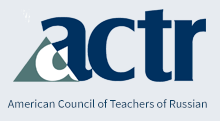Russian Language Journal
Keywords
Russian language teaching, critical pedagogy
Abstract
The current special issue tackles some of the most difficult pedagogical questions facing Russian language instructors today. As the articles illustrate, there is a growing awareness of the possibilities of critical pedagogy to dismantle existing hierarchies and to create inclusive spaces for learners. The authors included in this special issue provide us with what the field has long needed yet direly lacked: scholarship that offers both theoretical and practical guidance to integrate diversity, equity, access, and inclusion (DEAI) in curricula and study abroad programming. A number of the authors turn, rightfully so, to existing research by foreign-language specialists who have published on the barriers facing students from underprivileged and underserved communities (Reagan and Osborn 2021; Osborn 2006; Tochon 2019). While the field of Russian language studies is relatively new to this discussion, the current issue demonstrates an eager desire to change longstanding practices that have disadvantaged students from diverse backgrounds. The relative lack of Russian language materials centering social and racial justice reminds us of the lasting, troubling legacy of structural racism that informs the missions of educational institutions and that has driven knowledge production in the academy, including in Russian language pedagogy. Confronting these biases requires acknowledging and rectifying what is, in the assessment of Sunnie Rucker-Chang and Chelsi West Ohueri, “the epistemology of ignorance and white innocence” that has allowed scholars in Slavic Studies to locate “race and racism outside our region” (Rucker-Chang and West Ohueri 2021, 218–19).
Recommended Citation
Lucey, C. (2021). Diversity, Equity, Access, and Inclusion: Lessons for the Russian Language Classroom. Russian Language Journal, 71(3). https://doi.org/https://doi.org/10.26067/93J7-G146


